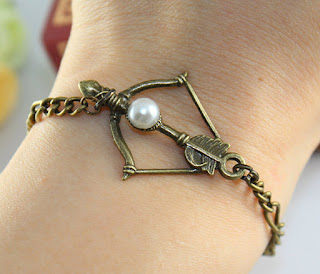I had to write a paper this week examining whether musical theater can be seen as a viable business option... and I thought it was interesting enough of a topic to share!
----------------------------------------------------------------------------
3.1a Answer the questions posed in “The Business of Mamma Mia!” discussion section at the end of the case study. Are there special conditions or conflicts of interest for performing arts as a business? Post your response to the 3.1a assignment space in the Week Three folder.
- Are plays, musicals, and productions merely another avenue through which to make money, or are other metrics such as creative expression the true return-on-investment?
In my opinion, theater has two main purposes: 1) to make money and 2) to entertain. The only way that #2 can truly be attained in the long run is to meet #1 first! So it is both a way to make money, and a way to entertain and provide the audience with a view of what the theater thinks is worthwhile in entertainment.
- Are these types of ventures managed like “traditional businesses,” with a projected profit motive, or is performance quality emphasized above all else?
In order for a theater to maintain a level of success, it MUST be managed properly with a focus on profit first. If a theater doesn’t focus on profit, it can find itself in financial ruin quickly and will no longer be able to bring entertainment to local audiences (Barron, 2005).
- Where does “Mamma Mia!” stand when compared with Broadway classics like “Les Miserables,” “Miss Saigon,” and “Cats”?
Hisrich, Peters & Shepherd (2010) stated in the text that Mamma Mia was a new type of musical theater that had not been done before. As an avid musical attendee myself, I happen to know that it has spawned several similarly-based musicals such as All Shook up (Elvis music), Moving Out (Billy Joel music) and Rock of Ages (80’s hair bands), so in that respect I would say that it holds its own in the theater world as being a solid piece of entertainment.
- Can those who come up with something new in theater be considered entrepreneurs? What about people like Craymer, who simply bring existing material into a new arena? Is she an entrepreneur?
Absolutely! As I mentioned above, Craymer created something that hadn’t been done in live theater musicals before – she used existing popular music that audiences already loved and then added a story to it that endears the songs to the audience even more. I would liken it to the use of Elton John to help create music for the popular Disney movie The Lion King – it was the first time a well-loved popular musician was used to write music for a Disney film, and became sort-of a standard for future films.
- Is the success of “Mamma Mia!” attributable to skill and business acumen, or was it a “fluke”?
The success of the musical really does come down to using the proper amount of business skill to decide how to release it and where/when. By starting with a smaller scale and moving up to a larger scale, Mamma Mia’s staff created a solid show that appealed to a broad audience. It wasn’t a fast process, and thus would have required skill to pull off.
- In the end, does it really matter to Craymer, her critics, and the many fans?
I love musical theater, and though I tend to try to see the “business” in everything, I overlooked the obvious connection between theater and business. I think most fans will feel that way – as long as it’s entertaining, we really aren’t going to take the time to stop and think about the business side of it and how it got to be where it is.
- Are there special conditions or conflicts of interest for performing arts as a business?
At first glance, it could be seen that there would be a conflict of interest between the theater wanting to make money while entertaining, and what the audience demands. For example, maybe the audience wants Spamalot to come to Omaha again, while the theater thinks it would make more money off Cats. However, thinking about it further, that is just the same in every business – there’s always give and take between what the market wants and what the business is willing to provide. Additionally, theater has up and down seasons just like any other business, and its how each theater responds that can drive the numbers (Jacobs, 2004). So I would say that theater is just as much a business as a retail store or restaurant.
References
Barron, F. (2005). THERE'S NO BUSINESS LIKE SHOW BUSINESS. Baylor Business Review, 22(2), 34-35.
Hisrich, R., Peters, M. & Shepherd, D. (2010). Entrepreneurship. McGraw-Hill: New York.
Jacobs, L. (2004). Theatre Continues to Weather Storms. Back Stage, 45(1), 4.
-------------------------------------------------------------------------------
What's YOUR take on the issue? Is theater a true business, or is it more about performance and less about profit?


































































